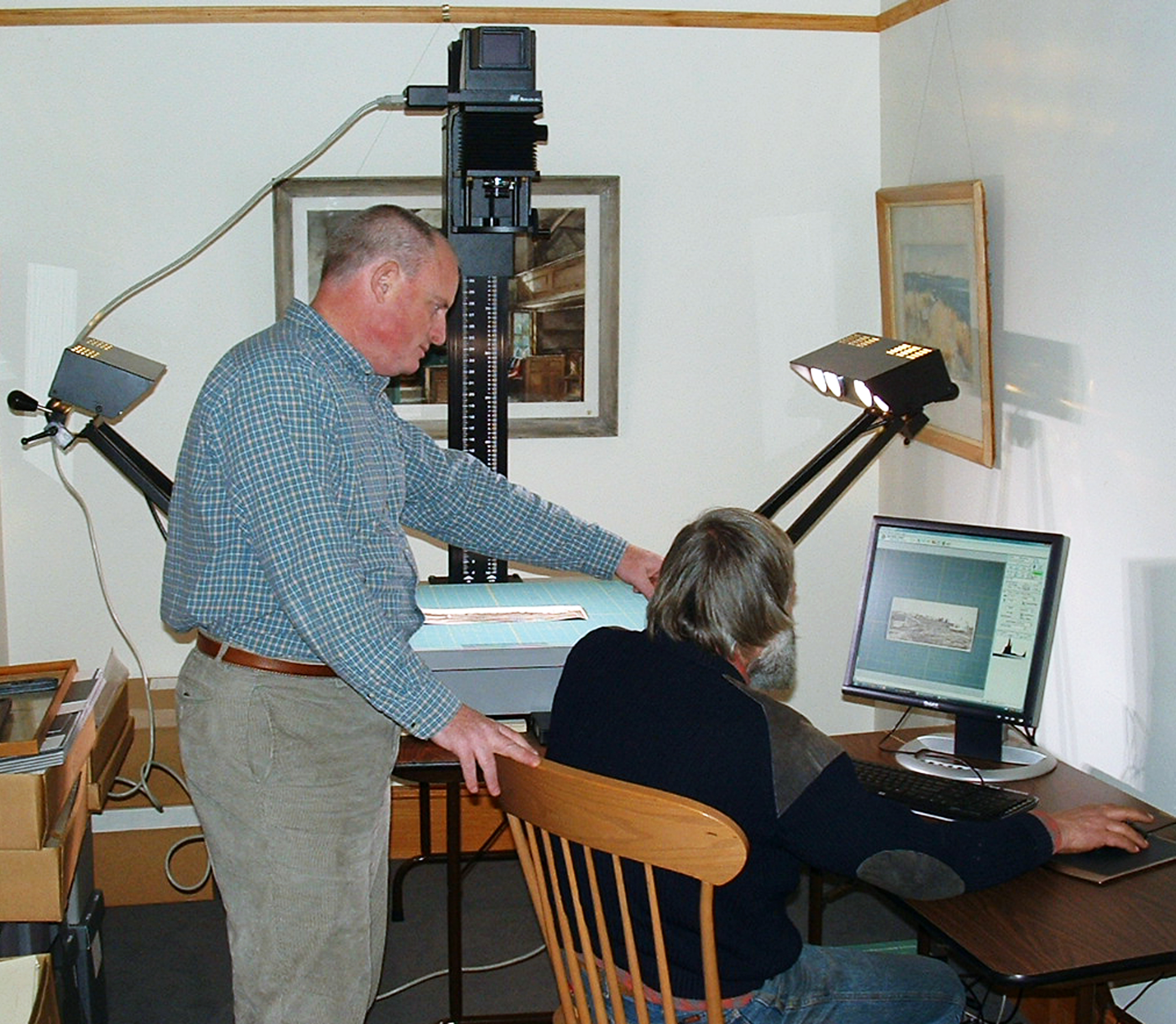 Maine state park historian Dr. Tom Desjardin, left, shows David Hackett of the Harpswell Historical Society how to use the digitizing equipment that will be used to scan and preserve papers of North Pole explorer Admiral Robert E. Peary.
Maine state park historian Dr. Tom Desjardin, left, shows David Hackett of the Harpswell Historical Society how to use the digitizing equipment that will be used to scan and preserve papers of North Pole explorer Admiral Robert E. Peary.
HARPSWELL — Personal documents of Adm. Robert E. Peary, who is believed to be the first person to reach the North Pole, will soon go digital thanks to a grant obtained by the Maine Department of Conservation and Bureau of Parks and Lands.
The $45,000 grant from the Davis Family Foundation and the Stephen and Tabitha King Foundation will allow historians to preserve letters, grocery lists and documents from Peary’s home on Eagle Island. The Harpswell Historical Society will scan and archive the documents using state-of-the-art digitizing equipment.
The equipment will be used by other historical organizations to preserve collections, documents and images. In addition to Peary’s effects, the conservation department plans to digitize items from the Colonial Pemaquid Archaeological Collection in Bristol and original maps of Mount Desert Island.
The project, dubbed the Maine History Preservation Initiative, will make available documents and images through the Maine Historical Society’s Maine Memory Network. The network provides a platform where Web users can view the data and historians can store it at no cost.
“I began with the question: ‘What if we could scan every historical document, image and artifact in Maine and make that image available for free on the Web?'” said Dr. Tom Desjardin, historian for the Bureau of Parks and Lands. “That led me to an exciting possibility, and now the reality, of saving Maine’s extraordinary wealth of history and making it accessible to everyone.”
The digitizing scanner is already being used to preserve Peary’s effects from his former home on Eagle Island, including grocery lists and a letter to President Theodore Roosevelt. The 100th anniversary of Peary’s expedition to the North Pole will be in April.
The Harpswell Historical Society is scanning Peary’s effects for permanent preservation.
“It looks like a great project and a generous resource to digitize these documents,” Selectman James Henderson said in a press release.
Henderson, the former director of the Maine State Archives, said making historical information more accessible has an added benefit of reducing the demand for the original documents, thus reducing the risk of damage.
“The project is also stimulating the Harpswell Historical Society to explore its own strategies for documenting and scanning its own holdings,” Henderson added.
The digitizer can scan large images like large wall maps and create panoramic images. Examples can be viewed at maine.gov/doc/parks/gigapan.html.
More information on the project can be found at mainehpi.org.
Comments are no longer available on this story